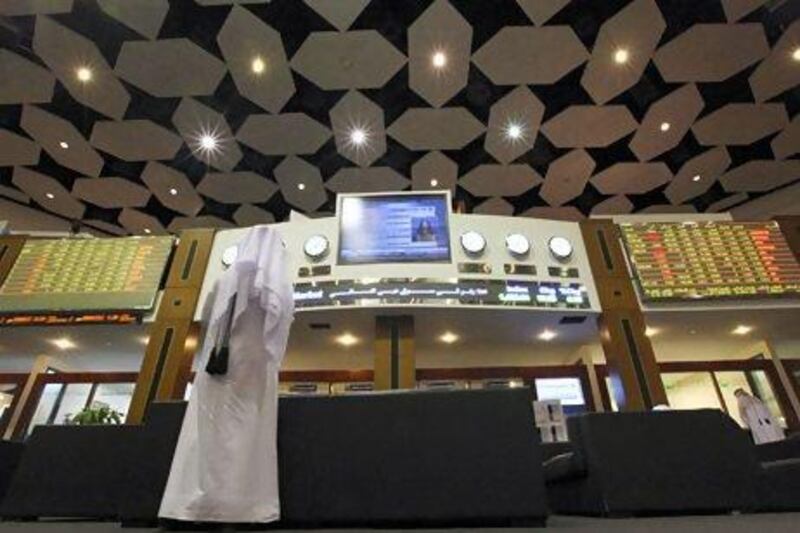Investors dumped stocks across the Middle East amid mounting speculation of a planned US military strike in Syria.
The Dubai Financial Market General Index was the worst performing index globally yesterday, falling 7 per cent in the biggest one-day sell-off since the Dubai World crisis of 2009. Crude oil rose as geopolitical tension increased, with Brent futures up US$2.30 to a six-month high of $114.19.
"There's panic all over the place," said Fadi Al Said, a senior fund manager at ING Investment Management in Dubai, who cited worries from investors over conflict in Syria as the immediate cause.
Western powers ratcheted up rhetoric against the government of president Bashar Al Assad yesterday after accusing Syria of using chemical weapons on civilians last week. Syria has denied taking part in the attack.
The United Kingdom parliament was recalled for an emergency debate on Tuesday while the United States defence secretary Chuck Hagel said the country's armed forces were ready to act, the BBC reported.
The bellicose rhetoric appeared to raise the odds of direct western military intervention, analysts from Bank of America Merrill Lynch wrote in a research report.
"Developments may add a geopolitical risk premium on to oil prices in the near term, though Syria is a marginal oil producer. Spillovers on to regional actors will largely depend on the extent and nature of any western military involvement, in our view," the report said.
Dubai's stock market joined a rout in emerging market stock exchanges, with the Middle East hit particularly hard.
The Abu Dhabi Securities Exchange fell 2.8 per cent to 3,822.04 and the Saudi Tadawul All-Share Index lost 4.1 per cent to 7,720.70, the biggest dip for the kingdom's benchmark in two years.
Stock markets in Turkey and Kuwait also saw sharp declines, while all other markets in the Arabian Gulf fell. Bond markets in the Gulf held steady, with Dubai Government's 10-year bond unchanged in trading.
The sell-off on local stock markets "looks like panic selling" driven by retail investors, said Amer Khan, a fund manager and director at Shuaa Capital.
"The political situation in Syria is the obvious catalyst, but these markets have weathered quite a few political storms, it's really difficult to imagine Syria being the only factor here," he added.
Dubai's market index remains up 57.1 per cent so far this year, with Abu Dhabi's benchmark 45.2 per cent higher than at the start of the year. With local equities outperforming most other markets this year, many investors did not require much convincing to sell out of trading positions and book profits, Mr Khan said.
"We received requests from some of our clients in Europe and Emirati high-net-worth individuals to liquidate positions," said Fathi Ben Grira, the chief executive at Menacorp. "Our brokers are citing worries over the regional situation now that the US is more into Syria."
Other emerging markets also suffered as investors feared the withdrawal of quantitative easing by the US Federal Reserve would spiral into a full-blown currency crisis.
The Indian rupee touched a record low of 67.2 rupees to the US dollar as investors feared a rising fuel import bill. The Sensex fell by 3.1 per cent in local currency.
The Philippine Stock Exchange Index fell by 3.9 per cent, closely followed by Indonesia's benchmark index which was down 3.7 per cent.
[ ghunter@thenational.ae ]





